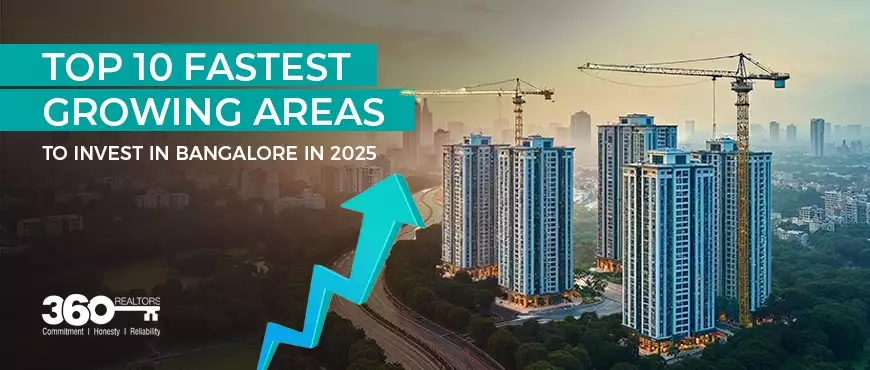One of the most transformative events the built world has ever witnessed may be COVID-19. Providing value has become a top priority for landlords and developers across the globe as companies reconsider their real estate strategy. In this feature, we will discuss the future of the commercial real estate and how technology can play a key role in the valuation of developed environments.
When are things going to go back to normal?
This is a topic that many want to ask themselves and others. Though we are seeing some things return to normal slowly, the fact is that (some) things are never going to be quite the same. CRE, specifically, the workplace, is one field where this is real.
The influence of workplaces on human efficiency and well-being is being tracked. Economic turmoil has reshuffled the needs of the workforce, setting up a new talent scramble and growing interest in robotics and automation. Remote work has challenged the way business leaders to think about their real estate assets and the very meaning of physical offices is being reviewed by several businesses.
Sharper Emphasis on the Value of Technology
Historically, the commercial real estate market has been reluctant to respond to new solutions. Luckily, this may change as property owners react to the pandemic. The appetite of the CRE sector for new ideas and innovations has evolved as a response to the current health crisis. More specifically, the pandemic "has focused more on how technology can increase the value of CRE." With companies rethinking their real estate strategy and footprint, delivering value has become a top priority for landlords and developers around the globe. The clearest parallel is the 2008 crisis, which led to a rise in the adoption of technology as real estate firms seeking acompetitive advantage and optimizing savings. When individuals and organisations continue to recognize the "new normal," technology will become a critical offering for tenants and end-users alike.
The Perfect Time to Innovate CRE Environments Broad trends in consumer, employer and worker sentiment have shifted dramatically over recent months and created the perfect environment for innovations to emerge. Those that do will undoubtedly define the workplaces of tomorrow and transform the future of CRE. In terms of the workplace, flexibility is now the holy grail.
This means that the CRE sector has to be more efficient in delivering productive and inspiring environments for tenants. For this reason, the offices have to undergo a period of rapid transformation. Tomorrow’s offices are likely to look physically very different because they’ll serve much more specific purposes.
As workers and managers better grasp what needs to be done in person and what can be done online, the focus will switch to increasing the quality of office interactions. This has several implications for the workplace.
One, which we are already seeing, is a growing reluctance to centralize the workforce. Companies are dispersing their workforce across multiple locations, providing them with more choice and autonomy while working remotely.
The Best Opportunity to Innovate in CRE Settings Wide patterns in customer, employer and worker sentiment have changed drastically over the last few months, providing a perfect climate for creativity to emerge. Those that do will certainly determine tomorrow's workplaces and transform the future of CRE. As far as the workplace is concerned, versatility is now the Holy Grail.
This means that the CRE sector needs to be more effective in providing tenants with profitable and motivating environments. For this reason, the offices must experience a time of rapid transformation. Tomorrow's offices are likely to look somewhat different visually, and they will serve much more precise functions. As staff and managers better understand what needs to be done in person and what can be done online, the emphasis will be on enhancing the quality of workplace interactions. This has a variety of consequences for the workplace.
One trend we are already seeing is an increasing unwillingness to centralize the workforce. Companies spread their workers through several countries, providing them with more choice and
control when operating remotely. Another key area of focus is health and safety. Technology can make the above implementations more efficient and user-friendly, therefore creating a better workplace experience. Growing demand for call rooms and semi-private booths as business travel is reduced.
Digital technology can enable property owners to keep up with changing demands, especially as they relate to the experience of the tenant. Smart infrastructure building makes it easier to optimize environmental conditions within CRE, but there is a growing need for tech solutions to provide environmental services to end-users. Among the features and services that properties can provide, half of CRE's leaders now believe mobile
and tablet integration is key to the success of their real estate.
The requirements of the CRE are evolving rapidly. The only way for propertyowners to keep up with this demand is by accepting and deploying the right technologies. The workplace has been interrupted by a lockdown and will be further affected by a subsequent economic downturn, a shift in the status quo of the real estate sector over the years and even decades to come.
It is now increasingly important to consider both the risks and the opportunities facing the built environment to adapt and mitigate the challenges that companies of all sizes have and will face. Technology will play a major part in shaping the future of work offering an array of opportunities, and the winners in the postCOVID world will be those players who make the right investments to unlock the full potential of what technology can deliver.
Technologies that will make an impact on Commercial Real Estate
A review of technologies on the horizon that are expected to have a major effect on investment in real estate is as follows:
Blockchain: a digital directory of economic transaction data that is checked by an entire network of computers can be configured to record financial transactions and essentially anything of value. This technology applies to the processing of real estate transactions and should be quickly embraced by the commercial real estate industry.
Artificial Intelligence: (AI) gathers data that increases thetransparency of information and allows investors to make smart choices by having access to contextual data, such as energy use building, market prices and how tenants use work space and common areas.
The Internet of Things (IoT): This technology provides substantial opportunities to invest in networking and sensors that monitor city and construction infrastructure, as well as in computing power that collects and analyzes data.
Virtual Reality (VR): a computer-generated simulation of a three-dimensional image or a complete world within a given and enclosed space with which viewers can interact realistically.
Augmented Reality (AR): brings visuals or details in realworld environments using computer graphics and/or audio overlays. AR is distinct from Virtual Reality (VR), which is used to re-create reality inside a fully constructed space.






